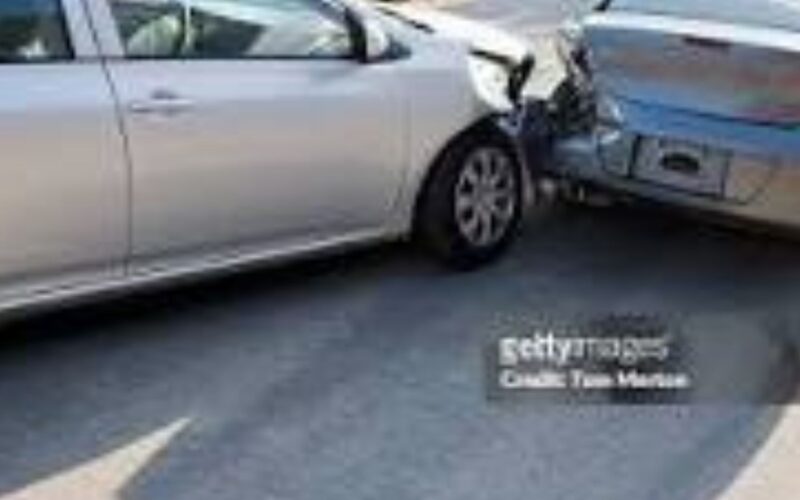A car accident claim encompasses the legal process of seeking compensation for damages resulting from a vehicular collision. It involves interactions with insurance companies, negotiation of settlements, and potentially, litigation.
People regularly ask how to settle a car accident claim without a lawyer. Car accidents can be unsettling and chaotic events, often leaving individuals grappling with physical injuries, emotional distress, and financial burdens.
In this comprehensive guide, we pay attention to settling a car accident claim without legal representation, offering valuable insights and practical tips for those embarking on the journey of self-advocacy.
How to Settle a Car Accident Claim Without a Lawyer
To settle a car accident claim without a lawyer, start by assessing the damage and documenting the scene thoroughly, including taking photos and gathering witness information.
Notify your insurance company promptly and provide all necessary documentation, such as repair estimates and medical bills.
Engage in direct communication with the insurance adjuster to negotiate a fair settlement, carefully reviewing any offers made. If the initial offer is insufficient, present a counteroffer supported by additional evidence of your damages.
Below are step-by-step guides to help you settle a car accident even without a lawyer:
1 Assess The Damages You’ve Suffered
You might immediately recognize some of the damages you’ve sustained; a broken arm, akin to a dented fender or a cracked windshield, may be glaringly apparent. However, it’s imperative to ascertain the full extent of these damages and determine the minimum compensation needed to resume your life and embark on the path to recovery.
Evaluating Damages: Key Considerations
- Assessing Medical Expenses
Consider the medical costs incurred due to the auto accident. From emergency room visits to ongoing treatments, ensure all expenses are accounted for. - Impact on Livelihood
Evaluate how the injuries affect your daily life or occupation. For instance, if you’re a builder and suffer a shoulder injury, determine the duration until you can resume work. - Anticipating Future Medical Expenses
Forecast the potential future medical costs associated with your injuries. Factor in rehabilitation, follow-up appointments, and any ongoing treatments. - Calculating Lost Income
Quantify the income lost due to the accident. This encompasses time off work for recovery, medical appointments, communication with insurance providers, and arranging vehicle repairs. - Emotional Toll
Consider the emotional distress and pain endured as a result of the accident. While challenging to quantify, it’s essential to address these aspects in settlement negotiations. - Vehicle Damage
Assess the costs associated with repairing or replacing your vehicle. Consider both immediate repair expenses and potential long-term implications. - Seeking Expert Guidance
Given the complexity of calculating these figures, it’s advisable to seek professional advice to ensure a fair settlement. Legal counsel can provide valuable insights and assistance in navigating the claims process effectively. By leveraging expert guidance, you can make informed decisions and pursue the compensation you rightfully deserve.
2. Gather Your Documents and Evidence
Ideally, following an accident, you should have secured all pertinent information required by your insurance company, as well as that of the other driver involved. This crucial information encompasses:
- The precise time, date, and location of the car accident.
- The name of the other driver and their insurance company.
- Details about the other vehicle, including its license plate number, VIN (Vehicle Identification Number), make, and model.
- Contact information of any witnesses present at the scene, along with their testimonies if applicable to your circumstances.
- Obtain a copy of the police report filed regarding the incident.
- Document all medical treatments undergone and the associated expenses incurred.
- Maintain records of any lost wages or income incurred due to the accident.
Acquiring and compiling this information is pivotal, particularly in instances where you may need to dispute fault in a car accident, especially if you are wrongfully accused.
It is advisable to share these details with your insurance company promptly, ideally within the initial 24 hours following the accident, provided you can do so.
3. Act promptly
To pursue fair compensation for your losses, it’s imperative to act within a suitable timeframe. Legal actions are bound by the statute of limitations, dictating the period within which you must file a claim or lawsuit.
This timeframe typically spans between one to three years for car accidents, although it varies based on your state of residence.
4. Consider The Other Parties Involved
In most cases where you are not at fault for a car accident, you will primarily engage with the other driver’s insurance company for compensation.
However, exceptions exist. For instance, if the accident involves an Uber driver who was actively working and had a passenger at the time of the incident, Uber might bear responsibility for the resulting damages.
Determining liability in such scenarios often necessitates consultation with either a legal expert or your insurance provider to navigate the complexities effectively.
5. Compose a Demand Letter
A demand letter serves as your formal submission to the other driver’s insurance company, aiming to secure compensation for the losses incurred due to the accident.
This comprehensive document should encompass, among other things:
- A detailed, factual account of the incident, provides a clear narrative of what transpired.
- A summary of the expenses incurred, not limited to current costs but also anticipating future expenses. This includes potential loss of income due to extended absence from work or the risk of termination.
- Information regarding your recovery process, such as planned surgeries, ongoing medical treatments, or participation in physical therapy sessions.
- Importantly, the demand letter should specify the compensation amount sought, reflecting the total losses suffered, including both current and future financial burdens, as well as non-economic damages like pain and suffering.
6. Consult With the Insurance Adjustor
Upon receiving your demand letter, the other driver’s insurance company may initiate contact to discuss the matter further.
It is crucial to stay focused on the topic at hand during these discussions and refer to the documentation you provided with your demand letter for reference.
This ensures clarity and consistency in your communication and helps substantiate your claims effectively.
7. Review the Settlement, If One Arrives, and Make a Decision
In certain instances, particularly when it has been established that you were not at fault for the accident, the other driver’s insurance company might propose a settlement.
A settlement constitutes a one-time payment offered to you, which, if accepted, signifies that you forfeit the right to file future claims for the losses incurred.
Put simply, by agreeing to the car accident settlement, you forego the option to seek additional compensation, whether for prolonged inability to work or increased medical needs.
Significance of Acceptance
Accepting the settlement offer holds significant implications. Essentially, you confront three choices:
1. Acceptance: Opt to accept the offer, acknowledging that further compensation requests are precluded.
2. Negotiation: Engage in negotiation with the insurance company to counter the initial settlement offer with a higher figure, seeking a more equitable resolution.
3. Decline: Reject the settlement offer. In such instances, the case may proceed to court. It’s essential to recognize that navigating the legal process can be immensely intricate, particularly if you opt to represent yourself rather than enlist the support of a lawyer.
Advantages of Settling Without Legal Representation
Opting to settle a car accident claim without a lawyer can offer several notable advantages, making it an appealing option for those comfortable with assuming a more hands-on approach to resolving their case.
- Cost Savings
One of the most significant benefits of settling a car accident claim without legal representation is the potential for substantial cost savings. Hiring a lawyer can be expensive, as attorneys typically charge fees based on a percentage of the settlement amount or billable hours.By bypassing legal fees, individuals can retain a larger portion of their settlement funds to cover medical expenses, vehicle repairs, and other accident-related costs. - Greater Control Over the Negotiation Process
Choosing to represent oneself in negotiations grants individuals greater autonomy and control over the entire settlement process.Without a lawyer acting as an intermediary, claimants have direct communication with insurance adjusters and can advocate for their interests without any third-party influence.This hands-on approach allows for more personalized and tailored negotiations, potentially leading to more favorable outcomes.
- Faster Resolution
In many cases, settling a car accident claim without legal representation can expedite the resolution process.Without the need to coordinate schedules with an attorney or wait for legal proceedings to progress through the court system, individuals can negotiate and finalize settlements more efficiently.This can be particularly advantageous for those facing urgent financial needs or seeking closure following a traumatic event.
Disadvantages of DIY Car Accident Claims
While self-representation in car accident claims offers certain benefits, it is not without its drawbacks. Individuals considering this approach should carefully weigh the following potential risks before proceeding without legal counsel.
- Limited Knowledge of Legal ProceduresNavigating the complexities of the legal system can be daunting, especially for individuals without formal legal training or experience.
Without the guidance of a knowledgeable attorney, claimants may struggle to understand their rights, obligations, and the procedural requirements associated with pursuing a car accident claim.
This lack of legal expertise could result in procedural errors, missed deadlines, or overlooked opportunities for compensation.
- Susceptibility to Insurance Company Tactics
Insurance companies employ various tactics to minimize their financial liability and reduce the value of settlement offers.Without the benefit of legal representation, claimants may be more vulnerable to these tactics, such as lowball settlement offers, delays in processing claims, or attempts to shift blame for the accident.Without the advocacy of a skilled attorney, individuals may find themselves at a disadvantage when negotiating with insurance adjusters.
- Potential for Undervaluing One’s Claim
Assessing the full extent of damages and accurately valuing a car accident claim requires a thorough understanding of applicable laws, medical terminology, and the nuances of personal injury litigation.Without legal expertise, individuals may underestimate the value of their claim or overlook potential sources of compensation.This could result in accepting inadequate settlement offers that fail to fully compensate for medical expenses, lost income, pain and suffering, and other damages incurred as a result of the accident.
Conclusion
While settling a car accident claim without a lawyer requires diligence, preparation, and strategic negotiation, it is a feasible option for those willing to take on the responsibility of advocating for their interests.
By arming themselves with knowledge, evidence, and perseverance, individuals can successfully resolve their claims and move forward with their lives.







